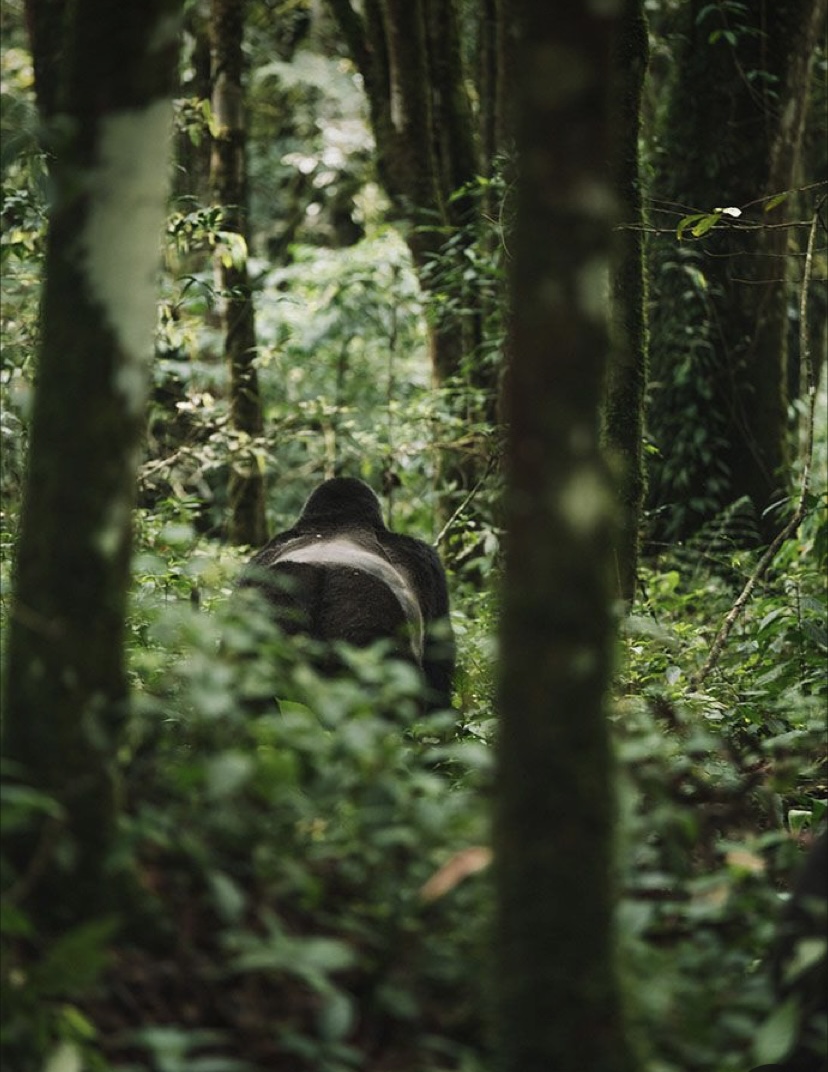WHAT TO PACK FOR GORILLA TRACKING
Tracking gorillas and other primates in east Africa is an unforgettable experience — but it’s also physically demanding and takes you deep into humid, mountainous rainforests. Here’s a refined packing list to help you prepare with confidence and comfort.
FOOTWEAR
Sturdy, closed-toe shoes or lightweight hiking boots
Choose footwear you’ve already broken in. Look for non-slip soles, ankle support, and preferably waterproof boots that rise above the ankle.
CLOTHING
Lightweight, neutral-coloured, quick-dry clothing
Trekking in high humidity and dense jungle is sweaty work. Long-sleeved shirts and trousers help protect against insects and stinging plants. Avoid white, black, or dark blue (which can attract tsetse flies).Waterproof trousers
Choose lightweight, breathable ones that tuck into socks or fit under gaiters for extra protection.Gaiters
Not just functional, but essential — they keep seeds, sand, and insects out of your socks.Rain jacket
Lodges often provide them, but bring your own if you have a reliable, packable version.Sweater or fleece
Mornings and evenings can be surprisingly cool at altitude.Sun hat
Essential in Africa, rain or shine — wide-brimmed is ideal.Shorts or light pants for lower altitudes
In warm areas, lighter clothing for daytime is comfortable.
ACCESSORIES & ESSENTIALS
Gloves (garden gloves work well)
For pushing aside vegetation in thick forest without scratching your hands.Walking stick or trekking pole
Provided in many parks, but a lightweight foldable one is helpful if you have a preference.Waterproof daypack
Keeps valuables dry — especially important for cameras, phones, and binoculars.Insect repellent
Choose one that doesn’t attract ants; avoid sweet-smelling formulas.Sunglasses & high-SPF sunscreen
You’re at altitude — UV exposure can be intense.Contact lenses
Preferable to glasses due to mist, sweat, and rain.
CAMERA & TECH
Camera with a zoom lens
Whether you prefer digital or film (I love my Contax), a long lens is key for capturing the moment.Binoculars
Great for spotting birds and primates from a distance.
HEALTH & COMFORT
Energy-rich snacks
Treks can last anywhere from 30 minutes to 6 hours — bring protein bars, trail mix, or dried fruit.Plenty of drinking water
Hydration is essential. Consider bringing a reusable bottle or hydration pack.Cash for tips
USD is accepted, but bring notes from after 2013 in good condition. Tipping porters and guides supports local communities.Hiring a porter
Even if you don’t need help, hiring a porter provides important income for locals and is always recommended.



